 John Mata Jr.
.
July 19, 2024
.
Buyer’s Guides
John Mata Jr.
.
July 19, 2024
.
Buyer’s Guides

it’s always amazing to see what true automotive artisans can pull off with old, rusted-out vehicles. Top-tier shops with the right combination of craftspeople and a collective hopeful outlook can make miracles happen. Classic Car Studio of Brentwood, Missouri, has proven it is indeed one of nation’s elite automotive restoration businesses, as documented in the TV series “Speed is the New Black,” which showcases some of CCS’s most celebrated accomplishments. Shop owner Noah Alexander and his crew have shown the world the high-caliber results they routinely pull off with nearly all types of vehicles, from vintage muscle cars to classic trucks and everything else in between.
Classic Car Studio of Brentwood, Missouri, has proven it is indeed one of nation’s elite automotive restoration businesses…



The last episode of “Speed” aired back in 2018, but that didn’t stop the CCS crew from doing what they do best even after the cameras stopped rolling. In fact, the show created new opportunities for the shop to take on with more clients with larger ideas to help push the boundaries of creativity. While the base level result of any project that carries a CCS stamp of approval is of an elevated pedigree, it’s still possible for a blinding burst of excellence to outshine all expectations.
The most recent vehicle to create such brilliance happens to be a crew cab 1956 Ford F-600 that exudes a sinister sense of sophistication that will no doubt sear a lasting spot in the memory of most custom truck fanatics.


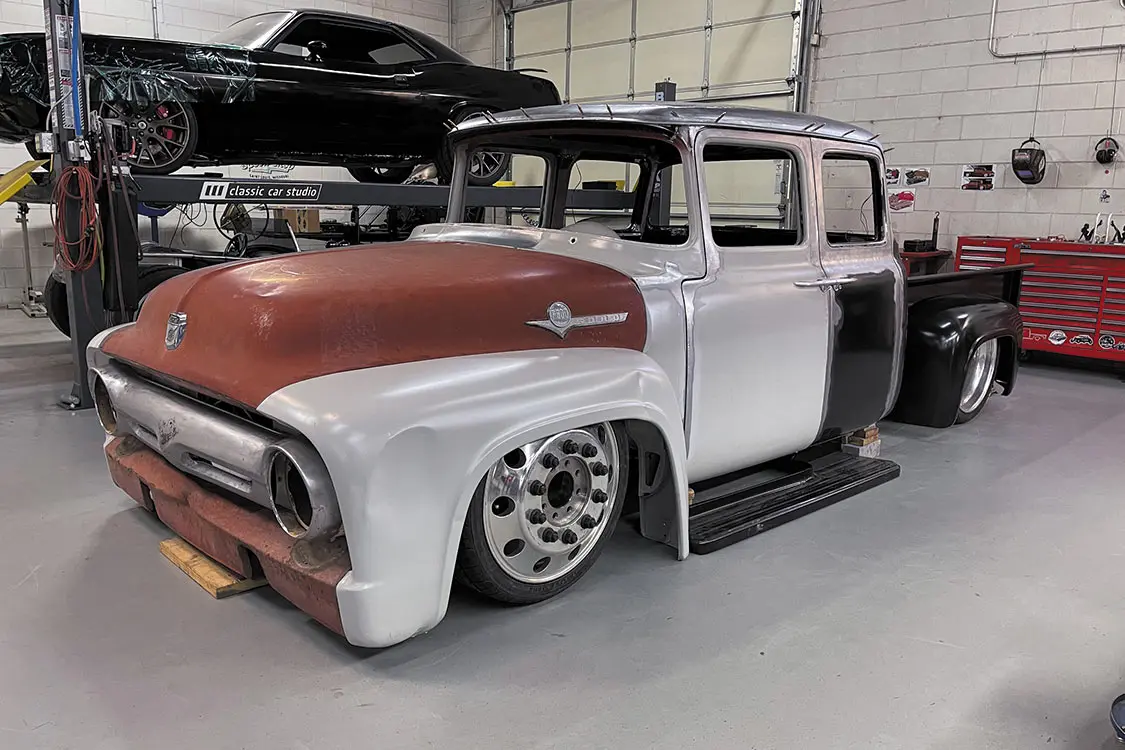
The F-600 was beat when came to CCS due to it living the hard life of a family farm truck. Its dull red paint was fitting of a near-70-year-old industrial workhorse, and the amount of rust and crud that fell from it with every movement was concerning to say the least. There wasn’t a whole lot that would be salvaged from the ’56 Ford carcass except for the cab, so its come-as-you-are condition wasn’t a deal-breaker at the end of the day. The imagined vision of what the truck could look like presented a level of potential that far surpassed the restrictive nature of its weathered shell.



Down But Not Out
The factory chassis had served the F-600 well throughout its years of dedicated labor, but so much more was in store for it with its scheduled reincarnation. Once the OE frame was removed from under the cab, it was loaded on the first truck headed to the scrapyard. CCS resident fabrication gurus Scott France and Mark Siddle designed an all-new, one-off foundation for the Ford that features a front Porterbuilt dropmember sub-frame complete with tubular control arms and Detroit Speed rack-and-pinion steering. The back of the chassis was outfitted with a Porterbuilt 4-link kit as well as a narrowed 14-bolt rearend. Air ride was always in the cards for this project, and to allow the ’56 to boast a fully adjustable ride height, Goodyear ‘bags along with Accuair air-management components and Viair compressors were properly plumbed and wired.
CCS resident fabrication gurus Scott France and Mark Siddle designed an all-new, one-off foundation for the Ford…
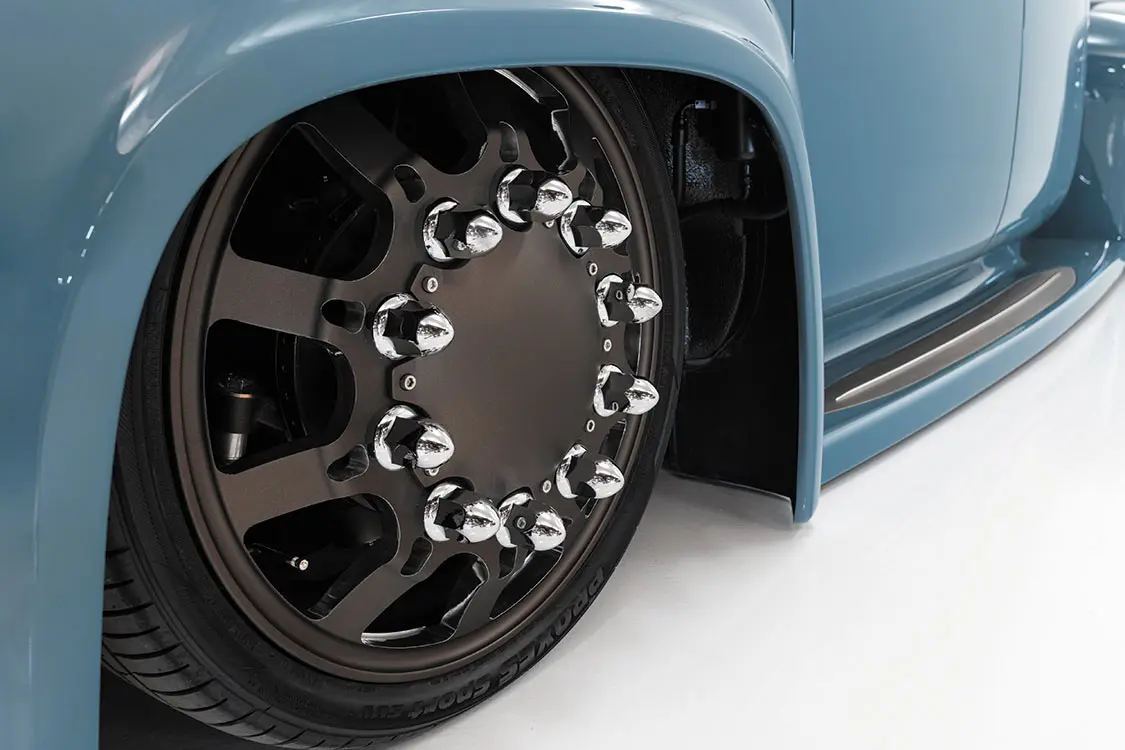

Another inclusion that was planned well before the project begun was maintaining the F-600’s rear dually wheel setup. Even though the truck’s frame was designed to lay flat on the ground, it still is very much a big truck that can still roll on big wheels. Nothing short of 22.5-inch Alcoa semi wheels (which were all turned down to 22-inch diameters) would do. Late-model 1-ton GM power brakes were also incorporated to into the chassis to bring the hefty F-600 to a controlled halt. Things were looking up at this point, but there was another factor baked into the new frame that would soon reveal what else Scott and Mark had cooking.

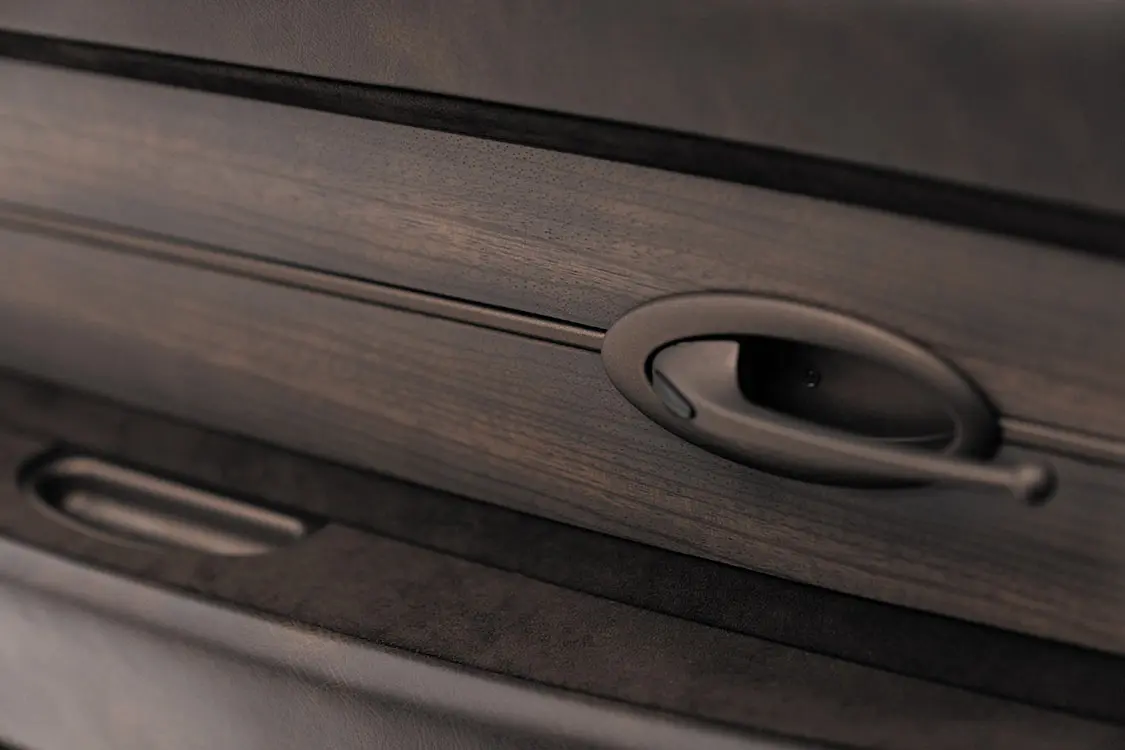

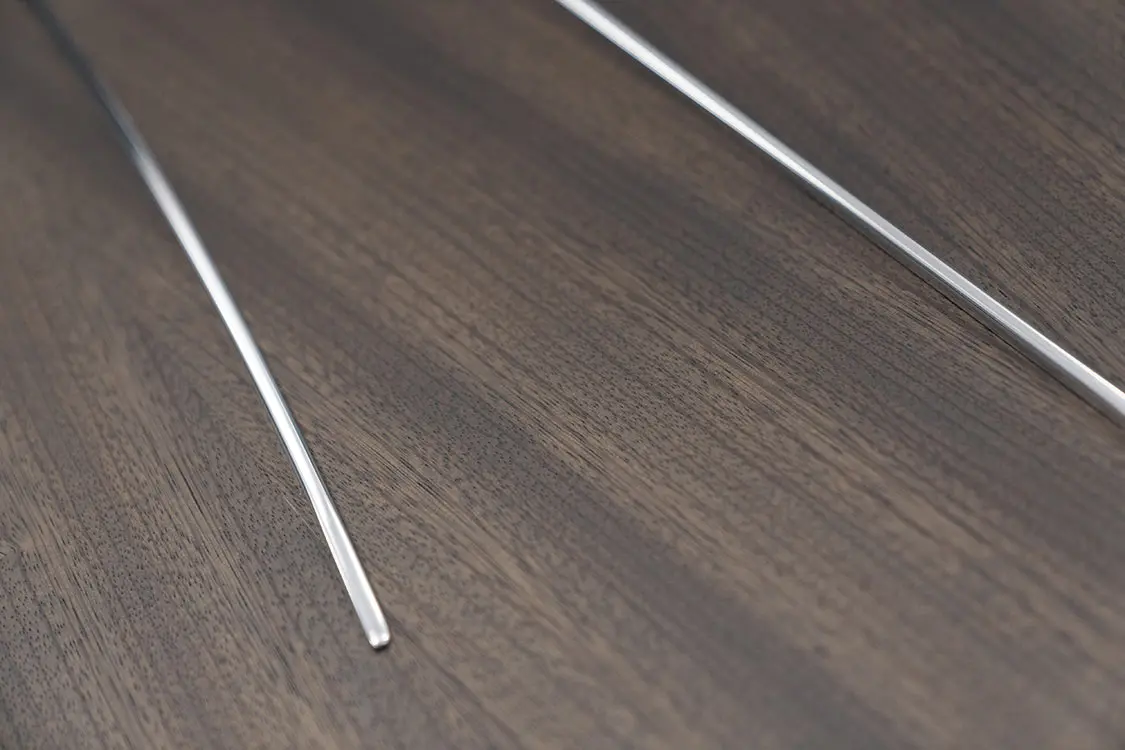
The chassis was outfitted with a body mount configuration much different than the factory F-600’s frame to accommodate a one-off crew cab that features a rear set of “suicide” doors and reinforced fabrication throughout, a handmade roof, floor, custom valance and grille section, and everything else imaginable. Not only was the quad cab specially designed for the project, but so was the bed that features unique rounded corner panels matched the cab for a façade that naturally flows from front to back. A curved opening was then cut into the bed floor to accept a slab of exotic zebrawood, which gives the truck that extra touch of class.
A curved opening was then cut into the bed floor to accept a slab of exotic zebrawood, which gives the truck that extra touch of class.
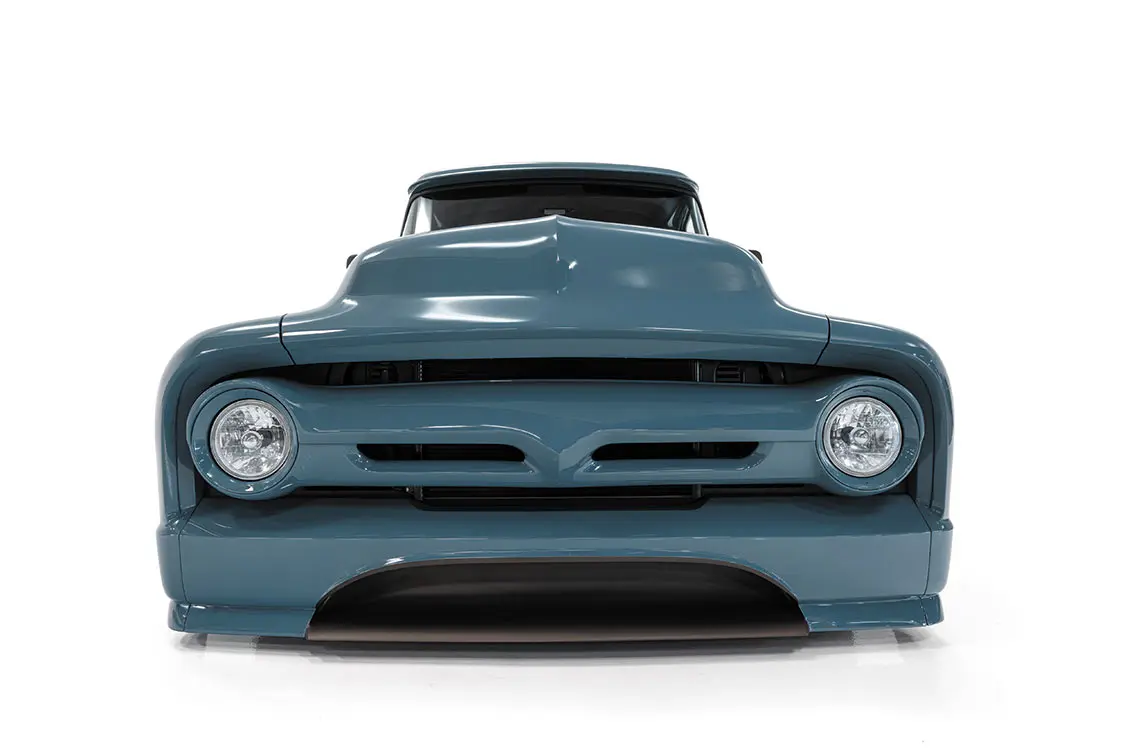

Once the exterior metal work was complete, CCS’s team of expert bodyworkers joined the project to adequately massage the truck’s exterior surface before the paint process could commence. While that was going on, Scott and Mark began test fitting the Cummins 24-valve 6.7L engine delivered from D&J Precision Machine. Now, the size of the diesel mill required some consideration on where to place it inside the bay. Once the right position for the engine was decided on, the guys began configuring a new firewall and series of paneling that would soon envelop all sides of it.
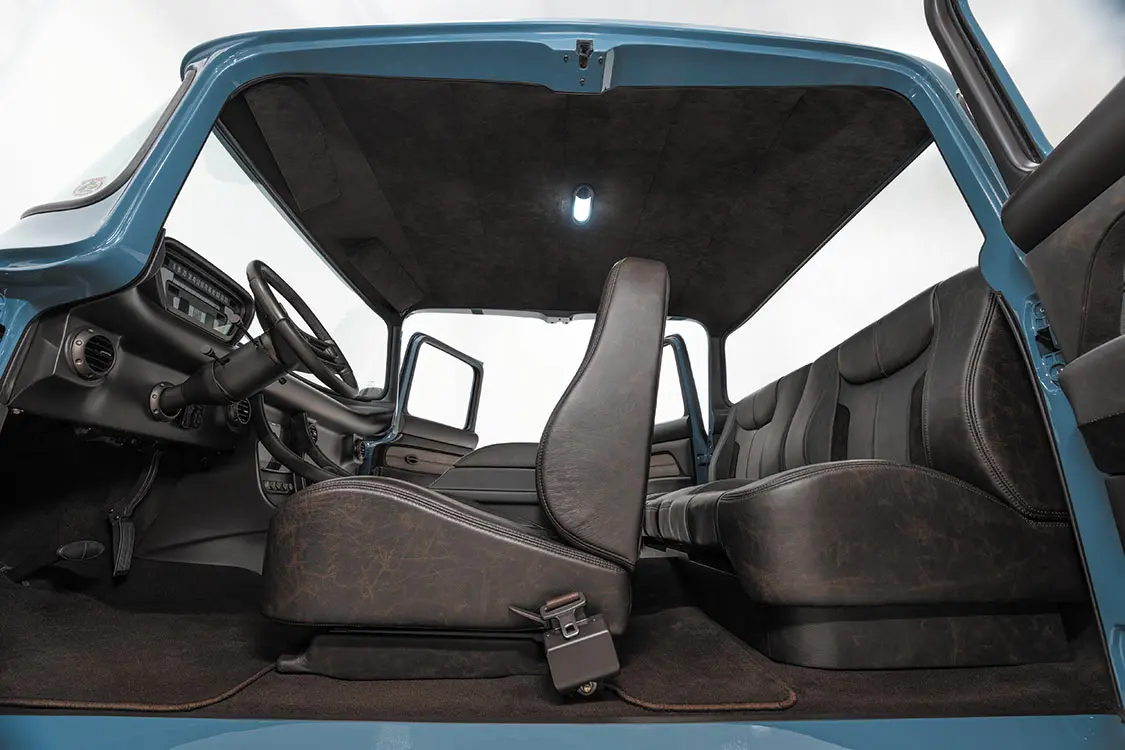


The owner of the F-600 selected Area 51 Blue—a factory Ford paint color to cover the exterior of the of the truck. Even though the hue is a more contemporary selection used on late-model Bronco and pickups, it looks right at home on the ’56. Soon after the paint dried and the multiple layers of clearcoat were buffed to a mirror-like shine, fabrication and interior work immediately began within the confines of the newly expanded cab. Scott and Mark fabricated a custom center console and metal dash with an opening designed specifically to house a Dakota Digital gauge cluster. A custom bronze paint was then used to cover the dash, upper halves of the inner doors and pillars, as well as the console, steering wheel, and so many other smaller accessories.

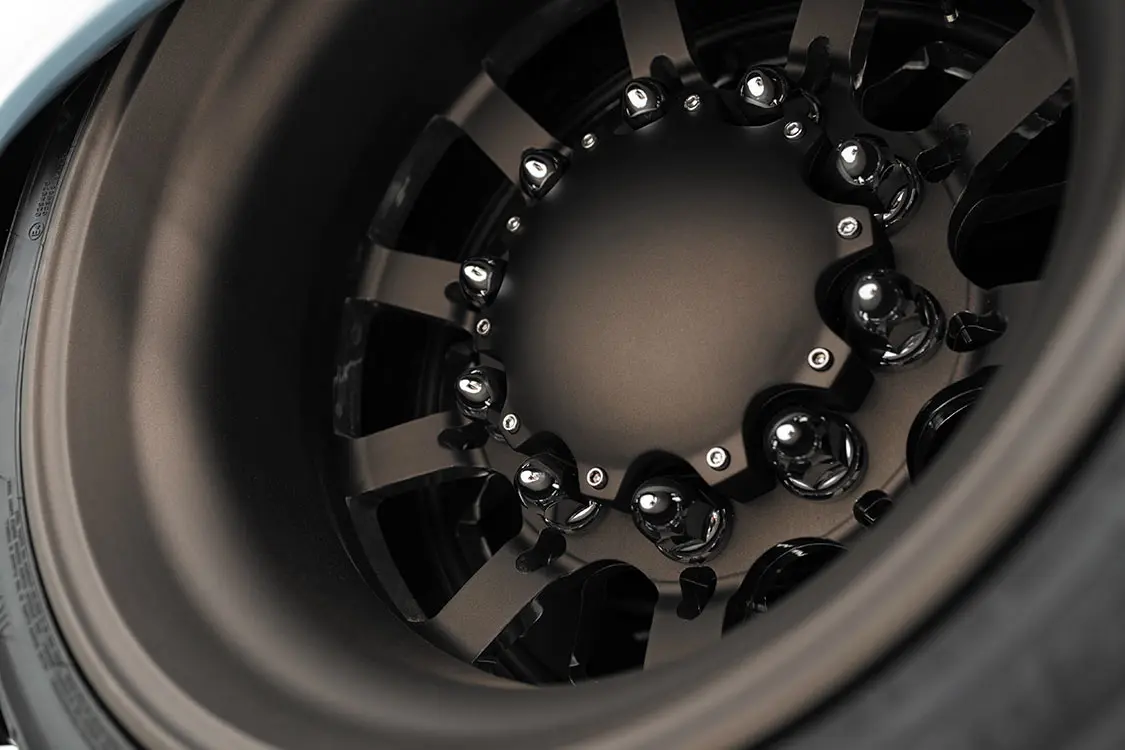
Next, CCS’ in-house upholstery specialist Laura Semaan began heavily upgrading the Snowden seat bases. The foam was meticulously shaped to give the exact form she was after. Exquisite seat covers were then sewn together with chocolate colored Relicate leather skins that proved to be the perfect finishing touch for the front buckets and rear bench seat. To further promote the interior’s cohesiveness, Laura also fabricated matching door panels complete with zebra wood inserts, which can now be found all throughout the F-600’s exterior and interior landscapes. A network of Kicker audio components was wired and stashed behind the rear seating area, and a one-off sub enclosure lurks below. Old Air Products climate control was also added to the list of in-cab amenities to ensure a pleasurable drive during all weather conditions.
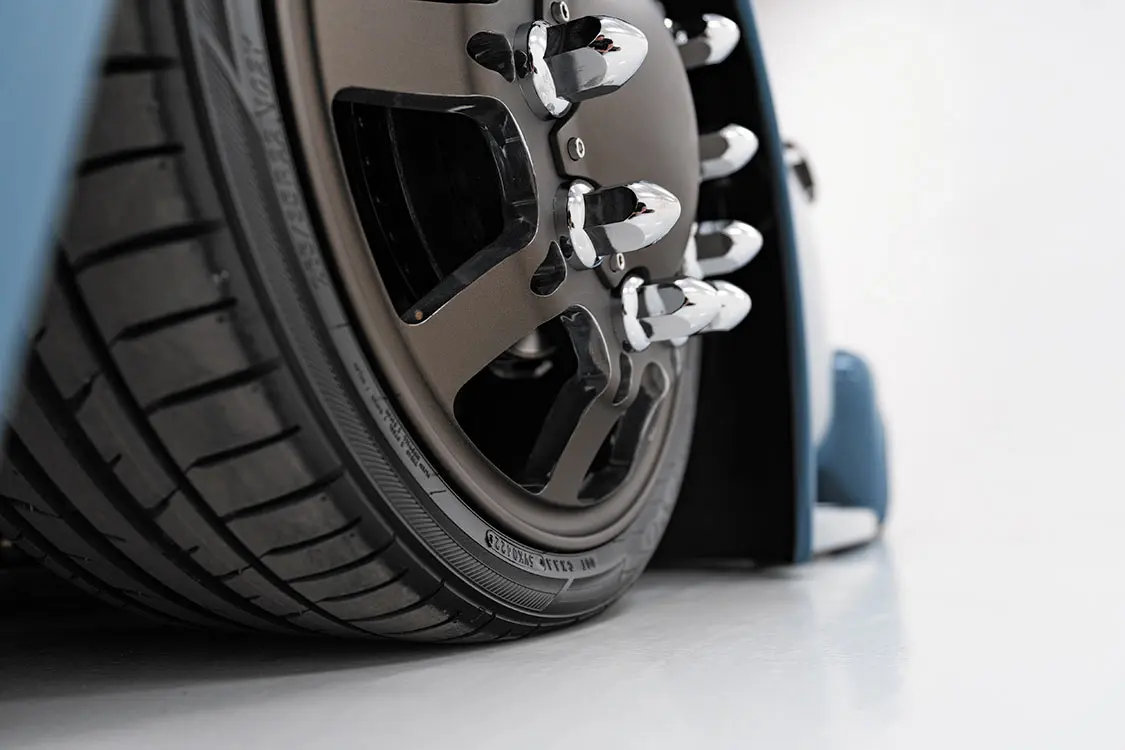

The summation of the F-600’s fabrication phases have been wildly underestimated here. An estimated 8,500 hours has been invested into the entirety of this project, which has spanned the course of just over three years. Every aspect of this truck is simply mind-blowing, and it’s apparent that there was never even a murmur of the word “shortcut” anywhere in its vicinity. There is a reason why the moniker given to this vintage Ford pickup has stuck, and there is no argument of it reigning as the current kingpin of the custom truck scene.
TRUCK SPECS
Owner
Engine & Drivetrain
Chassis & Suspension
Wheels, Tires & Brakes
Body & Paint
Interior & Stereo
Share Link